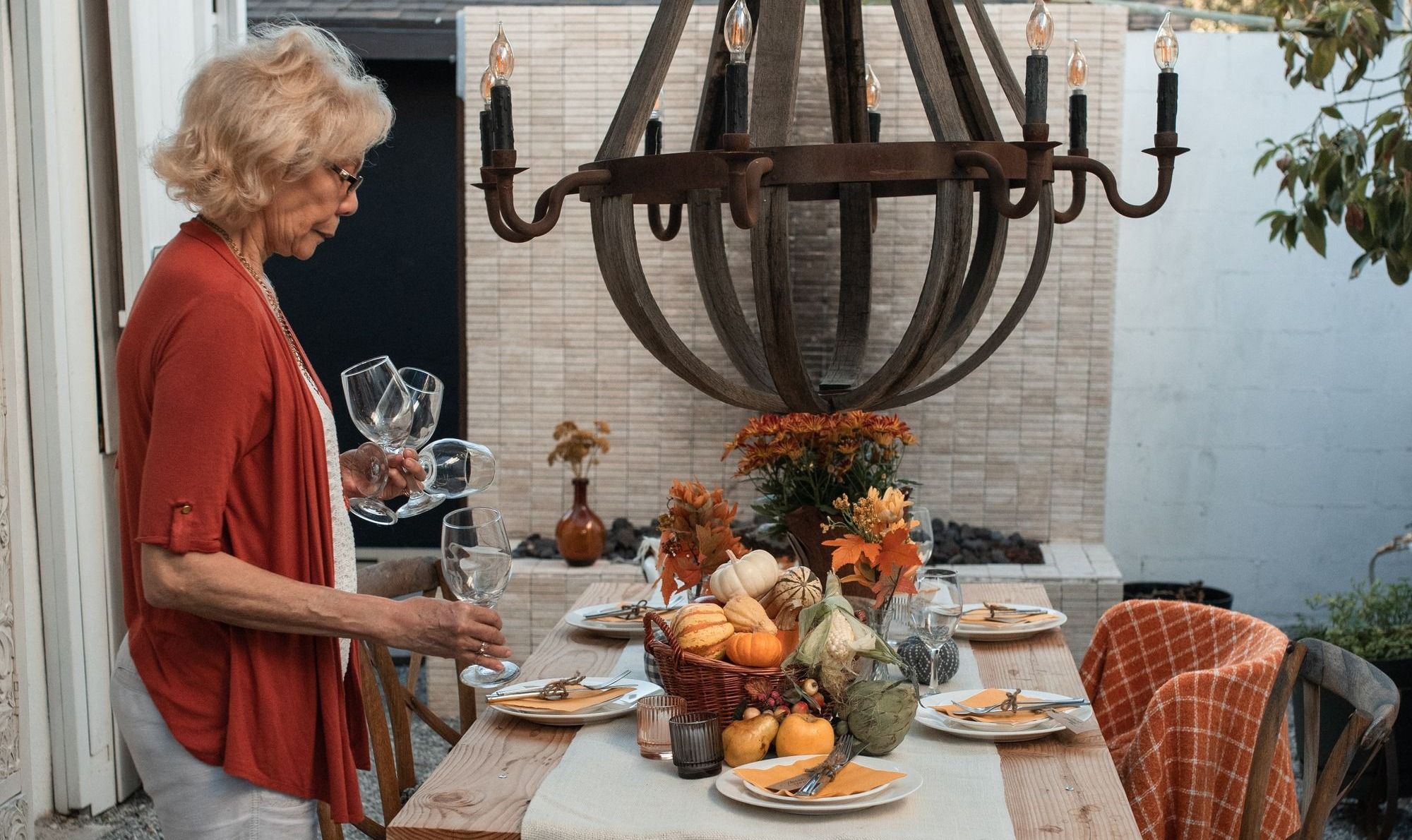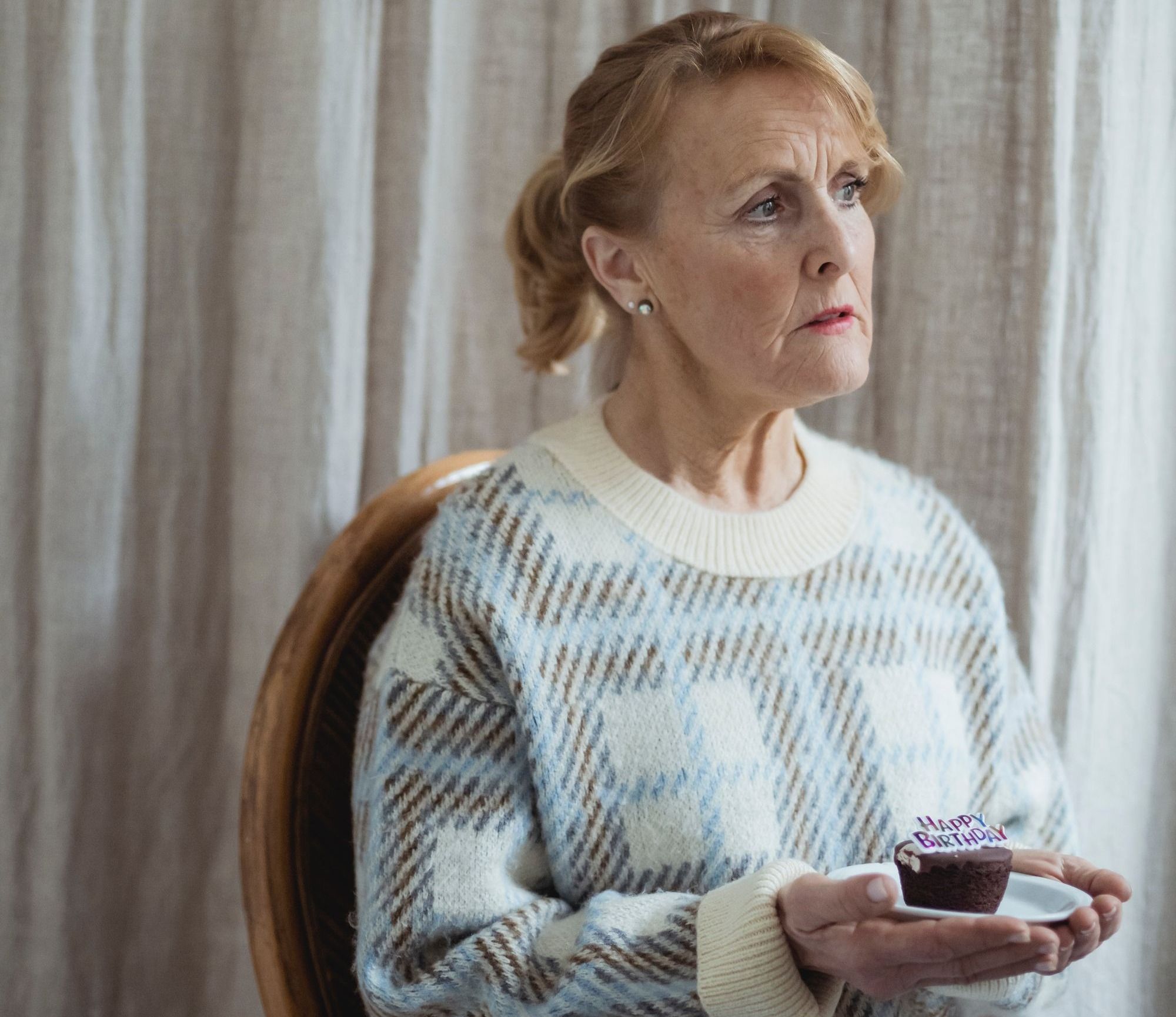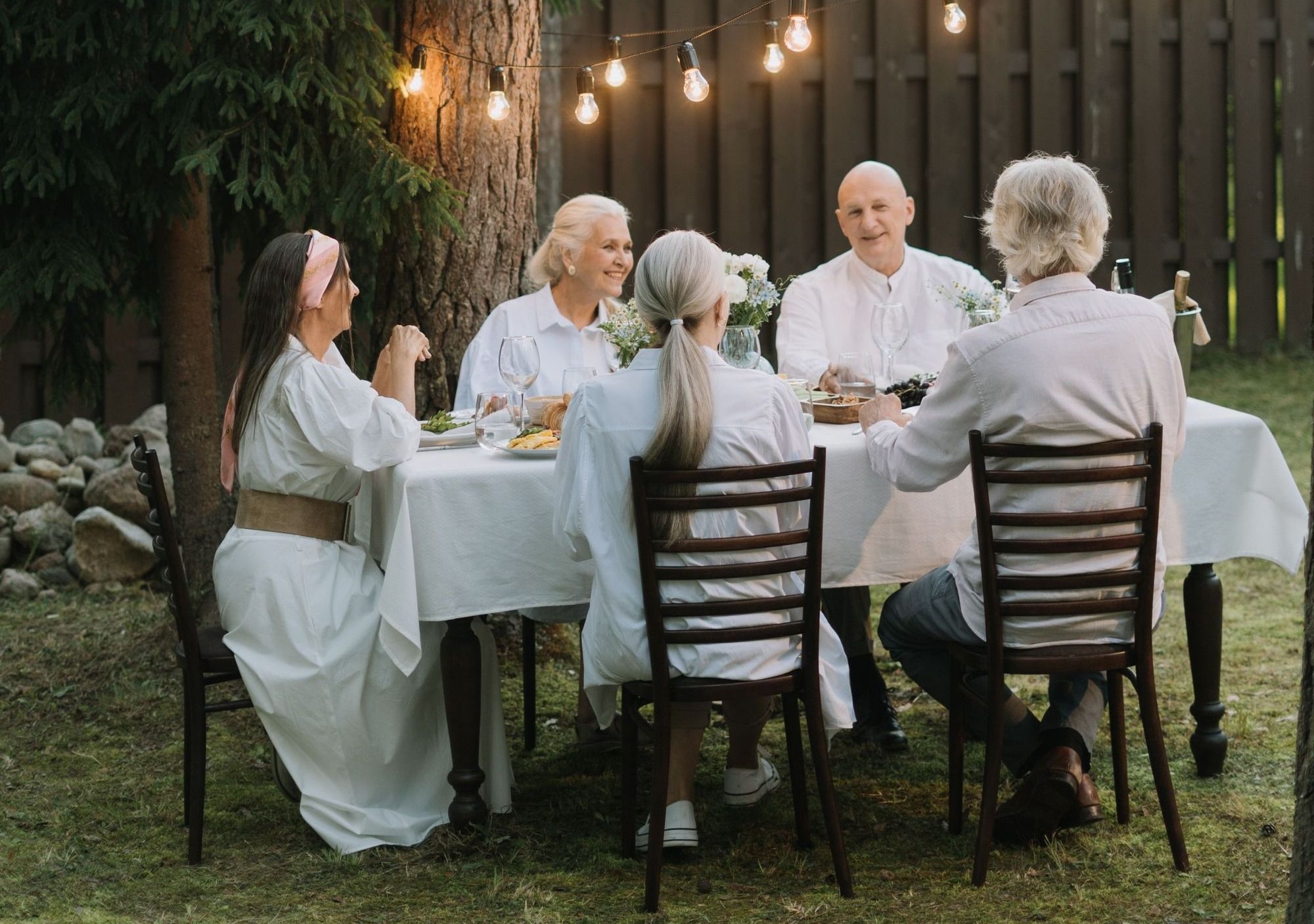Tips to Beating the Holiday Blues In the Elderly and Their Caregivers
Do you experience holiday blues? this is a time when we are reminded of loved ones lost. It is also a time to reflect on the passage of time. This is a time when we need to take extra care and tend to our own overall health and wellness

The holiday season is upon us once again. For me that is a source of the holiday blues. It has plagued me since I was 18 years old and I lost my mother between Thanksgiving and Christmas.
Instead of feeling joy and happiness at this time of year, I deal with bouts of sadness and a great sense of loss. It is also a time of reflection for me. On a personal note here, I lost my oldest son, a disabled veteran, to suicide when he was 35 yrs old. I miss him everyday. His passing has increased my sense of loss.
My decades of nursing have shown me I am not alone. As I support family caregivers, and seniors I realize our lifetime experiences and circumstances contribute to the holiday blues.
This is a time when we are reminded of loved ones lost. It is also a time for many to reflect on the passage of time. Seniors may feel a loss of independence, as they can no longer take part in the preparations for the holidays. I find that family caregivers feel as if the world is passing them by and they are stuck providing care for a loved one. Others feel anticipatory grief as their aging family member is declining and they don’t have the energy or health to enjoy the activities.
For many family caregivers feel it is a time of incredible stress and anxiety. Health conditions or concerns about money can also make it harder to enjoy the holidays.
This is also the time of year that many suffer from Seasonal Affective Disorder. This is a condition that starts in the late fall and early winter as the hours of sunlight decreases during the winter due to shorter days. This contributes to those feelings of holiday blues.
Holiday Season is a Time of Grief for Many

This is a time when seniors, or anyone experiencing grief, loss or the blues need extra support. We all need to learn to be gentle with ourselves at this time of your.
Of course, approaches for coping during the holidays is going to vary according to each individual needs.
This is a time when we need to take extra care and tend to our own overall health and wellness, as well as that of our aging family member.
The stress, the unrealistic expectations and memories of past holidays are a catalyst for the holiday blues. It is of course, a time of year when we may feel extra sentimental and yearn for those old feelings to reemerge. These thoughts give us comfort. They also give us pain.
Holiday Blues

Holiday blues are temporary feelings of depression and anxiety during the holidays. These feelings usually resolve after the start of the new year.
I find the unrealistic expectations we put upon ourselves, that society puts on us, increases our feelings of loneliness, sadness, fatigue, tension and a sense of loss.
We experience such pressure to experience the perfect holiday. We are constantly bombarded with TV ads, movies and holiday specials long before Halloween.
What are Your Expectations

If we believe the media spin we are expected to give and receive the perfect gifts. We are expected to spend the perfect amount of togetherness time with family and friends. All, while we are expected to feel pure joy and happiness over this holiday season.
This pre-conditioning creates huge gaps between our expectations and our reality. It is no wonder there is so much sadness and unhappiness at the holidays.
The Merriam webster Dictionary defines expectation as “a strong belief that something will happen or be the case in the future” or “a belief that someone will or should achieve something.”
Expectations are at the core of many stresses. We set expectations when we think, “I should” or “they should have.”
Expectations cause stress
Expectations are powerful. When we meet our expectations, we feel a sense of satisfaction at a basic human level. When we fall short of our expectations, we feel disappointment; at a basic human level we feel a sense of failure. Of course, we feel as if there must be something wrong with us.
One of the most difficult expectations to overcome is the ones we build during childhood. As children we find magical about the joy and excitement of the holidays. There is nothing that can replicate those childhood feelings, no matter how hard we try.
I tell my caregivers if you change your perspective, you can change your life.
Change Your Perspective, Change Your Life

The positive thing about expectations is that we are the ones that create them. They may be contributing factors moving you in one direction or another. Expectations you set for yourself, can be changed at any time.
It is important to realize we have more control than we think we do. We cannot change what others expect. We can change our own expectations.
I recommend that the first mindset a family caregiver change is to accept and realize they cannot be expected try and meet the expectations of others.
Everyone has different standards and these standards are often tied to expectations. This can be particularly challenging when set expectations that are not realistic. It makes you feel bad about yourself and leave you open to negative thought patterns.
How do we erase our negative thoughts?

Did you know that it takes 25 positive thoughts to erase a negative thought?
I encourage my family caregivers and seniors to practice an attitude of gratitude. It is human nature to focus on the negative.
For some, it means re programming our minds on the positive
When you have a negative thought try to replace it with a positive one. It can boost your emotional health and well-being. Start a gratitude journal. Take time every night to reflect on 3 good things from your day.
I have learned over the years that social media has contributed to these unpleasant feelings. So many of my family caregivers feel inadequate or insecure as they read posts from others. They see that others are having the perfect holiday, or having a perfect holiday get away. There are many that have feelings of envy and frustration.
These are completely healthy and normal feelings. The thing about social media is, it is not reality. People post things they want others to see. They so not show all the problems they may be dealing with.
Tips for overcoming the holiday blues

Don’t isolate yourself. I know this is one that I struggle with the most at the holiday. I just want to hibernate during the holidays and wake up in the spring. I want to skip the part of holiday shopping, gatherings and decorating. I want to skip the holiday movies that give us unrealistic expectations of what a holiday should be like.
Instead of going to bed and hibernating until its over, I have learned to adjust my expectations. In fact, I work hard at getting rid of them all together.
I recommend that you plan and do things that you want to do, not what is expected of you. I know longer try to meet the expectations that the media has set. Get out and take a walk in the morning or evening. It is a great way to beat the blues.
Reach out to others in your community, if possible. We are in a time where we have more seniors than youth. There are so many seniors that are alone at the holiday time. Offer to provide transportation to and from an event. Many would appreciate having support to go to church or a community event. My entire life, I have baked up a storm and given away the cookies to the seniors in my community.
The holiday season is an entire month, not just one day

The holiday time is an entire month; so don’t focus on just a day. It’s important for aging seniors to get out of the house and enjoy some fresh air everyday. Take a senior out for a meal, or a cup of coffee. How about a ride to see the decorations or lights? Getting out of the house is a great mood lifter for everyone.
Stop and Have a conversation with an aging senior. There are many that are lonely. Many, if given an opportunity, would like to share their thoughts about the holidays or just life in general. Given a chance, many seniors would embrace the opportunity to express themselves. I am sure it will lift their spirits as well as yours.
This leads me to my next tip to overcoming the holiday blues. Be willing to vary your holiday traditions. Or change them up. If you have a holiday tradition that brings up memories or an unrealistic expectation, don’t hesitate to change that tradition, if its too painful.
I am the oldest of 4. When my mom died, I was devastated. My mom went to great lengths to make the holidays special. We always had lots of extended family around at the holidays. That went away after my mom died.
To fill that void, I have always had huge holiday gatherings. I always included neighbors, friends and anyone that did not have a family to join us for the holidays. It was my way of making sure that no one was left out.
As I got older I have once again changed my traditions. I volunteer during the holiday s to help others. Last year I served Christmas dinner to the homeless.
There are so many things you can do to help others through the holiday season.
There are millions of seniors and their family caregivers that are struggling through the holiday season. The pressure and stress of the family caregiver is overwhelming at this time.
One of the best things a person can do is to offer to help a family caregiver or a senior living alone with their cleaning, shopping, cooking, and other preparations such as decorating.
Sometimes making a simple phone call, having a chat over coffee, or writing a nice e-mail, greeting card, or letter can brighten a mood. Reach out to the seniors in your church or community. They will appreciate spending time with caring supportive people.
Acknowledge your feelings

Another tip to help with those holiday blues is to acknowledge your feelings.
I have learned to acknowledge my feelings. There is nothing wrong with not feeling festive. There are many of us that have feelings of sadness and loss over the holidays. I’ve learned to be gentle with myself, and make sure I find a reason to laugh everyday.
The next tip I want always encourage my family caregivers Is the importance of practicing self care everyday.
Practice Self Care Everyday

Caregiving is challenging, so try to have some compassion for yourself. You do not have to celebrate at the same way you did in the past. You may decide that some holiday traditions are more overwhelming than enjoyable. Make a decision to let them go.
Changing the way you think about the situation can help you enjoy it differently.
For example, plan a low-stress holiday in your own home. Maybe plan to go out to dinner instead of cooking.
If you have extended family, reach out to them. Tell them what you need. Never assume they know what you need
Tell others how they can support you. This may be cutting back o the festivities or canceling typical gatherings. It’s ok to dial back on the gift giving.
Instead, ask for help with shopping, or taking your senior family member out for an outing on a regular basis. I have found that people want to help. But do not know what to say or where to start.
A sense of well-being comes from living a life with a balance. Self-care includes the basics of eating a balanced diet, getting moderate exercise, and plenty of sleep.
The distractions and stressors around the holidays make it easy to lose sight of these necessities.
Include calming activities like reading, meditating, and gratitude journaling can be helpful at this time of year.
I want to share quote with you. “Gratitude turns what we have into enough.”
Feeling grateful for what you do have and properly managing expectations will help you get through the holiday season.
You might also like this article:



